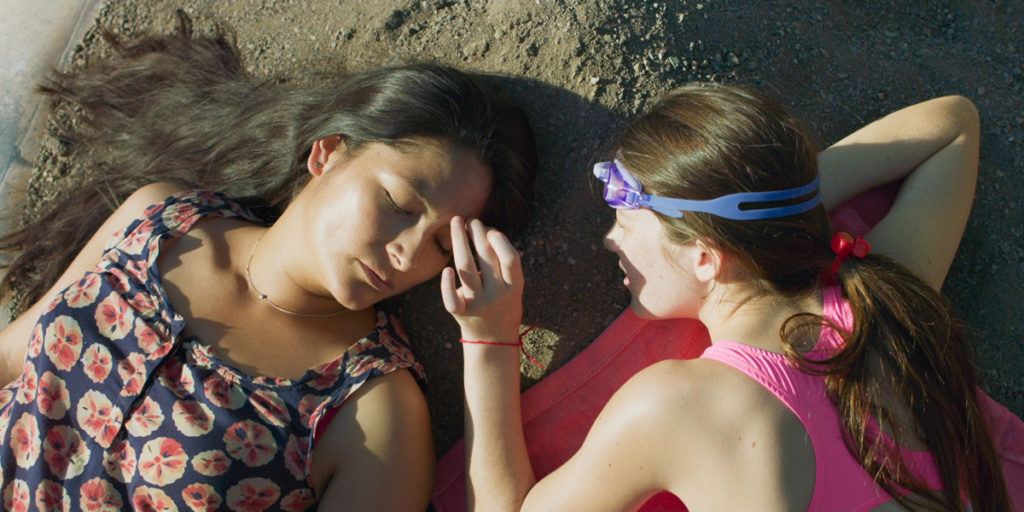María Paz González was born in Temuco, Chile. She studied journalism at the Universidad de Chile, and specialized in screenwriting and filmmaking. She’s worked in different roles of film production. In 2011, she made her first documentary, “Hija.”
“Lina from Lima” will premiere at the 2019 Toronto International Film Festival on September 5.
W&H: Describe the film for us in your own words.
MPG: “Lina from Lima” goes inside the world of a working woman, mother, and migrant who sees how everything she left in Lima is changing while she remains the same in another country. The film is a witness to those first moments in crisis, when someone is trying to find the way to redefine herself. This process, which seems quite universal to me, can be very deep, but also very emotionally stunted. Maybe that’s why everything turns into a dramedy.
W&H: What drew you to this story?
MPG: Migrants are moved by a powerful internal voice that leads them to leave everything with the intention of finding something better far away. I’ve always found this fascinating. Throughout my life, I’ve met many migrant women who lived in Chile that have told me about their journey, their desires, and how, through time, their objectives changed.
Through these women I discovered a bittersweet world full of contradictions, but much more colorful and bright than seen in your typical migrant films. I met empowered and funny women, with a plethora of concerns, far from the stereotypes that cinema usually gives to migrants characters. From these findings, I decided to tell this story.
W&H: What do you want people to think about when they are leaving the theater?
MPG: I would not want to direct the thoughts of the audience. I just would love if the audience go home singing.
W&H: What was the biggest challenge in making the film?
MPG: In my first fiction feature I’ve tried to make an intimate, close, and empathetic film with a character that has to face the passage of time — something that is quite invisible. It is a film where the character struggles with material objects that try to account for her discomfort and inner conflict. The challenge was how to build the depth of the protagonist’s story with a mere gesture. The impeccable work done by Magaly Solier, who plays Lina, was essential on that.
To visualize and capitalize the power of that inner conflict, I thought of musicals.
W&H: How did you get your film funded? Share some insights into how you got the film made.
MPG: It was a film made by public funding from Chile, Peru, and Argentina. There is no private or studio money in our budget. There was only the commitment of funds granted by the people who have resisted this terrible moment in Latin America with the arrival of governments that do not believe in the value of culture.
W&H: What inspired you to become a filmmaker?
MPG: I think the stories that my mother read to me as a child had a lot to do with that. Everything was always very visual to me. I was fascinated to discover that the same story could be completely different depending on how it was told, with endless possibilities.
W&H: What’s the best and worst advice you’ve received?
MPG: When I was in a state of doubt and continued to constantly revise the story, someone told me, “This script is done. Stop rewriting. Go ahead and film it before it’s too late.” And of course, I realized that it was right. If I continued to delay everything, my initial impulses of telling this story would be gone. It takes a lot of work to make a film and you have to take advantage of the momentum you have and not lose it.
In a moment of fragility, I showed a first rough cut to someone with a lot of experience that told me, “The character is not understood. If you want to succeed with this film, you have to do it thinking that someone in Japan can understand it.” That comment stayed with me. I’d like to think that the human condition is something universal. If I try to make a film thinking of someone completely out of my world, I could lose the essence of my film. This way of thinking could homogenize the story’s possibilities.
For me, there is something really powerful in what is abnormal or weird. As a storyteller, I think you shouldn’t be afraid of those abnormalities but rather embrace them. It’s from that essence that you can also communicate a lot to an audience.
W&H: What advice do you have for other female directors?
MPG: I think there are no recipes. Just make your own path and walk without fear. For me, the key is to have a great team. They should believe in your project as you do. It’s always nice to have a lot of powerful women on your team.
W&H: Name your favorite woman-directed film and why.
MPG: I am very interested in what I have seen of Chloé Zhao, director of “The Rider.” The way she combines documentary with fiction seems dazzling. I am very curious about her upcoming films, including the ones with superheroes.
W&H: What differences have you noticed in the industry since the #MeToo and #TimesUp movements launched?
MPG: I am a little far from the big industry, but from a distance, I can see that now we are conscious of abusive practices that previously were completely normalized. That was very important: ending the fear. Now I think that it is also necessary to normalize that women can be directors and they can tell the stories that they want.
Historically, there has been an absence of the feminine point of view in art and it is necessary to catch up. It would be nice if the industry realizes this so we can move forward with this matter.







